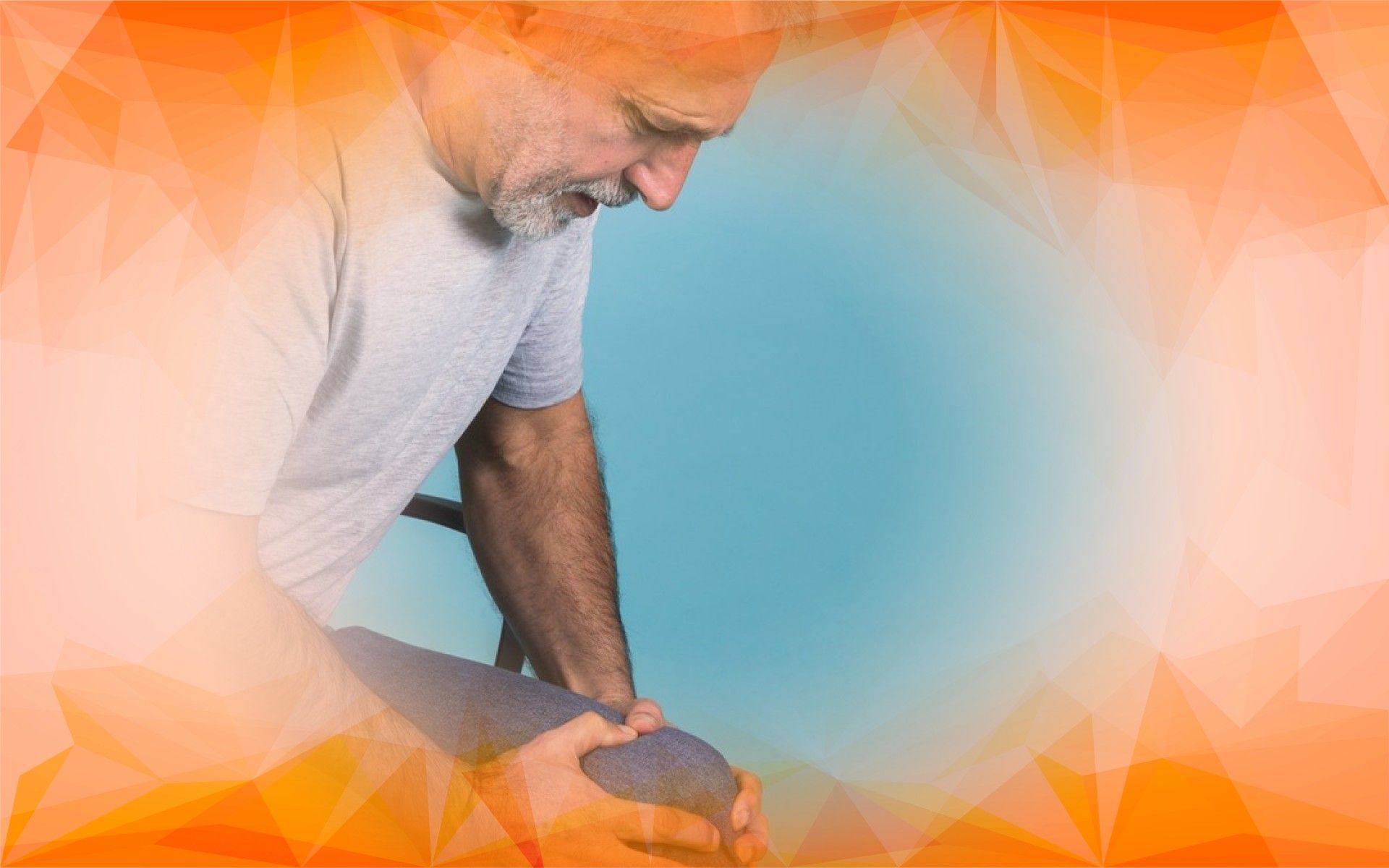Knee osteoarthritis is a widespread and often painful condition that affects millions of people globally. Everyday activities like walking, climbing stairs, or even standing up can become challenging as a result. Managing this condition effectively is a shared goal for both patients and healthcare professionals. In this article, we’ll explore how merging the latest medical breakthroughs with time-tested traditional therapies can offer a more balanced, personalized approach to treating knee osteoarthritis . By combining modern science and traditional wisdom, we hope to provide practical insights for effective knee osteoarthritis care.
Understanding Knee Osteoarthritis and Its Treatment Options
Knee osteoarthritis occurs when the cartilage cushioning the joint gradually wears away, leading to pain, stiffness, and reduced mobility . This can significantly impact quality of life, especially as people age. As the population grows older, there’s an increasing demand for treatments that not only ease symptoms but also help maintain joint function.
Modern medicine offers a range of treatment options, from pain relievers to advanced therapies that aim to repair or protect joint tissues. At the same time, traditional approaches—particularly those rooted in Chinese medicine—have been used for generations to lessen pain and support mobility. Integrating these distinct strategies allows care to be tailored to individual needs, and research increasingly shows that a combination of treatments can achieve better results than relying on a single approach.
Modern Therapeutic Approaches
Recent years have brought exciting advancements in medical treatments for knee osteoarthritis . One notable innovation is mesenchymal stem cell (MSC) therapy, which involves injecting specialized cells into the knee to help repair cartilage and reduce inflammation. Clinical studies show patients treated with MSC therapy often report decreased pain and improved mobility, as measured by standard assessments like the Visual Analogue Scale (VAS) and the WOMAC index.
Thermotherapy—using gentle, controlled heat to soothe stiff joints —increases blood flow, helping to ease discomfort and improve movement. Medications like non-steroidal anti-inflammatory drugs ( NSAIDs ) are widely used to manage pain and swelling, though long-term use can carry risks such as liver, cardiovascular, gastrointestinal, or kidney complications. Many people also try supplements, like glucosamine and chondroitin, in the hope of supporting cartilage health. Some research suggests that daily glucosamine sulfate may provide safe and cost-effective relief, although results can vary.
Another promising treatment is viscosupplementation , where hyaluronic acid is injected directly into the knee joint to provide lubrication and pain relief. Research indicates that these injections can relieve pain for several months—often longer than NSAIDs or corticosteroids—and have good safety profiles. This option is particularly beneficial when used in the earlier stages of osteoarthritis , or as part of a comprehensive treatment plan.
Traditional and Complementary Treatments
Traditional Chinese Medicine (TCM) brings valuable complimentary therapies that can enhance modern care. For example, acupuncture —placing fine needles at specific points on the body—can relieve pain and boost joint function. Many studies confirm that acupuncture, especially when combined with conventional treatments, offers meaningful relief from knee osteoarthritis symptoms.
Another traditional method, moxibustion, involves warming certain points on the knee with heat from burning herbal sticks. Recent reviews show moxibustion can improve quality of life, knee function, and pain management for osteoarthritis patients . These findings highlight how time-honored practices can hold up under modern scientific scrutiny and serve as valuable additions to treatment plans.
Herbal medicines derived from plants may help reduce inflammation and support joint health . Additionally, TCM promotes specific knee exercises to strengthen muscles and stabilize the joint, which helps prevent further damage. These exercises—often safe to perform at home—are key to a holistic approach that aims to restore overall balance and well-being.
Academic and clinical research increasingly supports integrating traditional methods with modern medicine for improved outcomes, making TCM an important part of a well-rounded care plan.
Integrative Care: Personalizing Treatment for Better Results
The best results often come from combining modern medical innovations with traditional therapies, tailored to the individual. Everyone experiences knee osteoarthritis differently, so a personalized blend of treatments is more likely to bring effective, lasting relief.
For example, someone with advanced osteoarthritis who wants to avoid surgery might benefit from a combination of stem cell therapy , acupuncture, and guided exercises—using illustrated instructions or videos to ensure proper technique. This integrated approach addresses pain, inflammation, and mobility limitations together, leading to more comprehensive relief.
Guidelines and expert opinions increasingly recommend combining treatments, such as viscosupplementation with other conventional therapies, for better management than using a single intervention alone. This integrated strategy draws on both scientific evidence and traditional wisdom, empowering healthcare providers to deliver care that improves quality of life in sustainable ways.
Conclusion and Looking Ahead
Managing knee osteoarthritis through an integrative approach—blending modern medical advances with traditional therapies—offers real promise for improving patient outcomes. This method recognizes both the complexity of osteoarthritis and the importance of customizing care for each person.
As research continues, integrative treatment options will become even more refined, enabling doctors and therapists to design highly personalized plans. Patients are encouraged to discuss these approaches with their healthcare professionals and consider combining both modern advancements and traditional therapies for optimal relief.
Ultimately, this balanced, informed approach can help people with knee osteoarthritis regain mobility, reduce pain, and enjoy a fuller, more active life.
References
Ray, T. (2013). Using Viscosupplementation to Treat Knee Osteoarthritis. The Physician and Sportsmedicine, 41(4), 16-24.
Wang, X., Jiang, Y., Xiong, J., Yuan, T., Yang, J., Zhou, X., Liao, K., & Xu, L. (2020). Moxibustion for treating knee osteoarthritis. Medicine, 99(19), e19974. https://doi.org/10.1097/md.0000000000019974
Simoens, S., & Laekeman, G. (2010). Pharmacotherapeutic aspects of treating knee osteoarthritis with glucosamine sulfate. Health, 2(7), 705-707. https://doi.org/10.4236/health.2010.27107
Frequently Asked Questions
AMSK Clinic at Harley Street, London, offers a unique integrative approach, combining cutting-edge modern therapies with traditional Chinese medicine. This highly personalised treatment philosophy delivers optimal outcomes, drawing on our specialised expertise, advanced technology, and track record of patient-centred care in managing knee osteoarthritis.
At AMSK Clinic, each patient receives a bespoke treatment plan tailored to their unique needs, symptoms, and lifestyle. We blend modern options, such as mesenchymal stem cell therapy and Arthrosamid®, with traditional methods like acupuncture, moxibustion, and specific exercises, ensuring the most effective, holistic care for lasting relief.
AMSK Clinic offers a range of advanced treatments, including mesenchymal stem cell injections, Arthrosamid® viscosupplementation, and targeted thermotherapy. These methods are clinically validated for reducing pain and increasing mobility, and are delivered by our experienced team at Harley Street for the best patient outcomes.
Yes, AMSK Clinic successfully integrates Traditional Chinese Medicine techniques—such as acupuncture, moxibustion, and herbal therapy—with conventional treatments. Studies support that combining these traditional approaches with modern medicine offers real benefits in pain reduction, improved joint function, and enhanced quality of life for osteoarthritis patients.
Absolutely. AMSK Clinic specialises in integrative care, expertly blending modern advances, like Arthrosamid® and stem cell therapies, with traditional techniques from Chinese medicine. Our experience shows that such personalised, combined treatments yield superior outcomes in mobility, pain relief, and patient satisfaction compared to single-method approaches.




